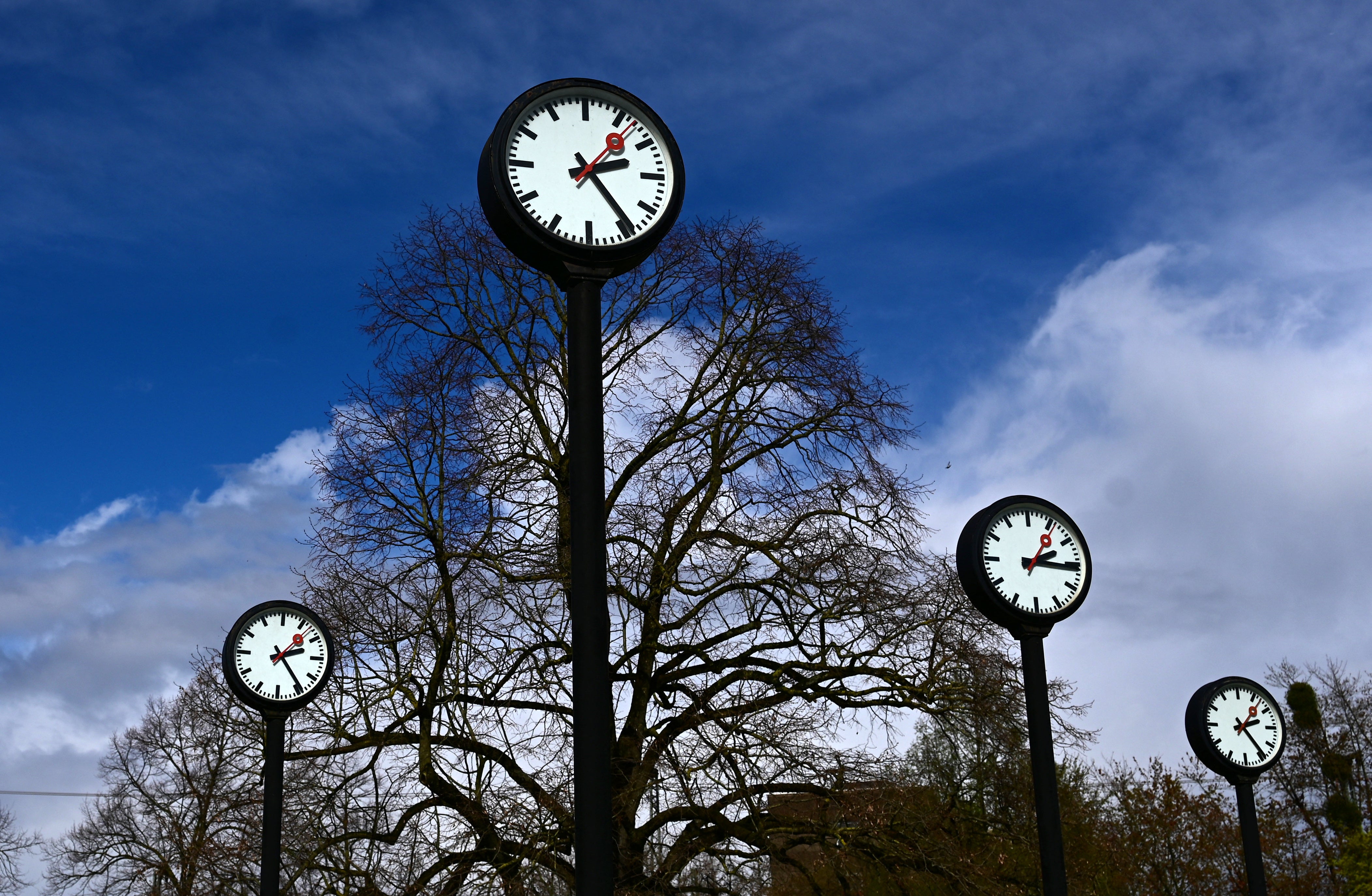The world is speeding up and we might need a ‘negative leap second’, study says
Climate change means that major event could come later than expected

Your support helps us to tell the story
From reproductive rights to climate change to Big Tech, The Independent is on the ground when the story is developing. Whether it's investigating the financials of Elon Musk's pro-Trump PAC or producing our latest documentary, 'The A Word', which shines a light on the American women fighting for reproductive rights, we know how important it is to parse out the facts from the messaging.
At such a critical moment in US history, we need reporters on the ground. Your donation allows us to keep sending journalists to speak to both sides of the story.
The Independent is trusted by Americans across the entire political spectrum. And unlike many other quality news outlets, we choose not to lock Americans out of our reporting and analysis with paywalls. We believe quality journalism should be available to everyone, paid for by those who can afford it.
Your support makes all the difference.The Earth might soon need a “negative leap second” where a second will be removed from existence, experts say.
That is because the spin of the Earth is gradually speeding up, meaning that a full turn of our planet does not take the exactly 24 hours suggested by our clocks.
But that increase in speed has been reduced a little by the effect of global warming, according to a new study. Changes in the ice caps mean that the negative leap second could be required three years later than it would be expected otherwise.
Much of today’s technologies, such as computers and financial markets, rely on time to be dependable and consistent. But the Earth’s rotation is not constant, which has meant occasionally adding a leap second so that the two can go back into alignment.
That rotation is however speeding up, so that the world is catching up with clocks. That has happened enough that leap seconds are more and more rare.
One day soon, however, the speed will be such that the world will actually need a “negative leap second”, scientists say. That will see time taken away, rather than added.
It would mean that on one chosen day, 23.59.59 would simply not exist. The clock would skip from 58 seconds and onto the next day.
“This is an unprecedented situation and a big deal,” said study lead author Duncan Agnew, a geophysicist at the Scripps Institution of Oceanography at the University of California, San Diego.
“It’s not a huge change in the Earth’s rotation that’s going to lead to some catastrophe or anything, but it is something notable. It’s yet another indication that we’re in a very unusual time.”
It is not clear that a negative leap second would be possible given our current computing infrastructure. While time has been added numerous times in the past – since 1972, there have been 27 leap seconds – it has never been removed in the same way, and so software is not built to subtract rather than add time.
“A negative leap second has never been added or tested, so the problems it could create are without precedent,” wrote Patrizia Tavella from the Time Department at the International Bureau of Weights and Measures, in an accompanying article. She suggested that experts should work to understand how likely it is that a negative leap second will be required – allowing them to assess the risks that it might pose.
Computers have struggled with the leap second itself before. In 2012, when one was added, issues were seen across a variety of companies including Reddit and Qantas Airlines.
Some have argued that the leap seconds shouldn’t exist at all. Timekeepers are organising to change clocks so that they are not needed, and tech companies have begun adding fractions of seconds over a full day so that the clocks remain correct.
The leap second was also not necessary in the past, when the time was aligned with the movement of the Earth. But since the 1950s, the time has been based on atomic clocks that are more precise, and so have moved away from the less reliable spin of the Earth.
Join our commenting forum
Join thought-provoking conversations, follow other Independent readers and see their replies
Comments